‘(Un)SCREWING CARE’ SEMINAR opens the first phase of Catalyst CIRCLUSION *, promoting a collaboration between six organisations and cultural collectives based in Spain and Belgium, with the objective of sharing tools with which to use care both as principle and as method of resilience and resistance, in the current cultural and socio-political context.
*Catalysts [Catalizadoras] are the collective action research groups conformed around four conceptual and practical focuses. They facilitate and promote intersection of knowledges, exchange, imagination and generation of joint experiences with the communities that want to be involved in the project. In this case, Catalyst ‘Circlusion’ revolves around the focus ‘Care and support networks’.
‘Thinking about fucking in a different way would simply mean that when we say
I’m being fucked by the system we’re saying we’re getting badly fucked
– badly circluded, for instance – or, more precisely,
not getting fucked at all.’
(Sophie Lewis, 2016)
What is the role of care in cultural organisations and in artistic practice in order to ensure their sustainability?
Do we want cultural institutions and artistic practices to operate from the standpoint of care?
What exactly does this mean?
How is care made tangible in artistic and cultural practices and organisations?
Nowadays, care is a concept widely used in the cultural milieu in relation to the need for devising more sustainable structures that could pay attention to the (precarious) conditions in which cultural workers operate. However, this notion of ‘care’ has historically been based upon complex relations of power structures that can be easily replicated depending on how care is inserted into cultural organisations or artistic practices. Thus, if care is really going to guide political and organisational changes in our everyday lives and in cultural practices and organisations, a space is needed from which to point out the complexities, the difficulties and the fuss that care in itself entails, so that we are not fucked at all but ‘circluded’, as Sophie Lewis would say.
CIRCLUSION does not penetrate, envisions care from the standpoint of circlusion
The online seminar (Un)SCREWING CARE was hosted by the Antwerp Research Institute for the Arts (ARIA) and the University of Antwerp (UA), in the framework of the Research Seminars public program of the Antwerp Doctoral School.
During the gathering, all six invited cultural organisations and collectives were encouraged to discuss about a specific methodology or tool linked to care, or something not defined as such but that they deemed and felt would be linked to care within their cultural organisation and/or practice.
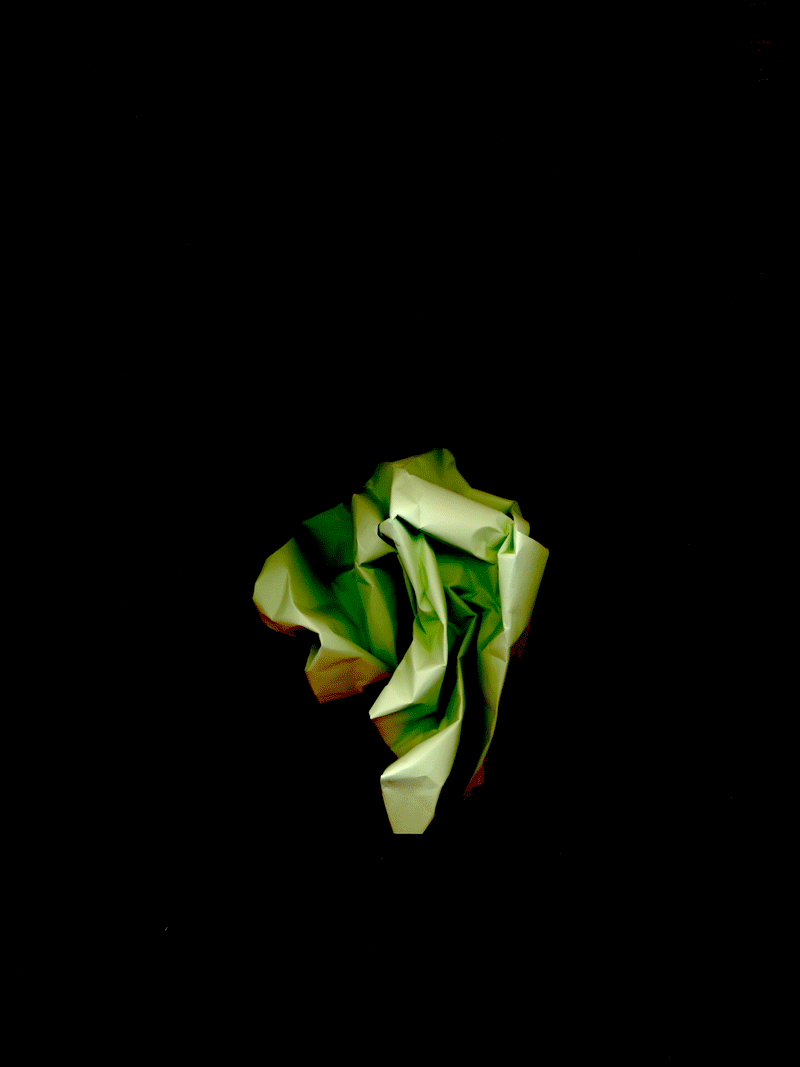
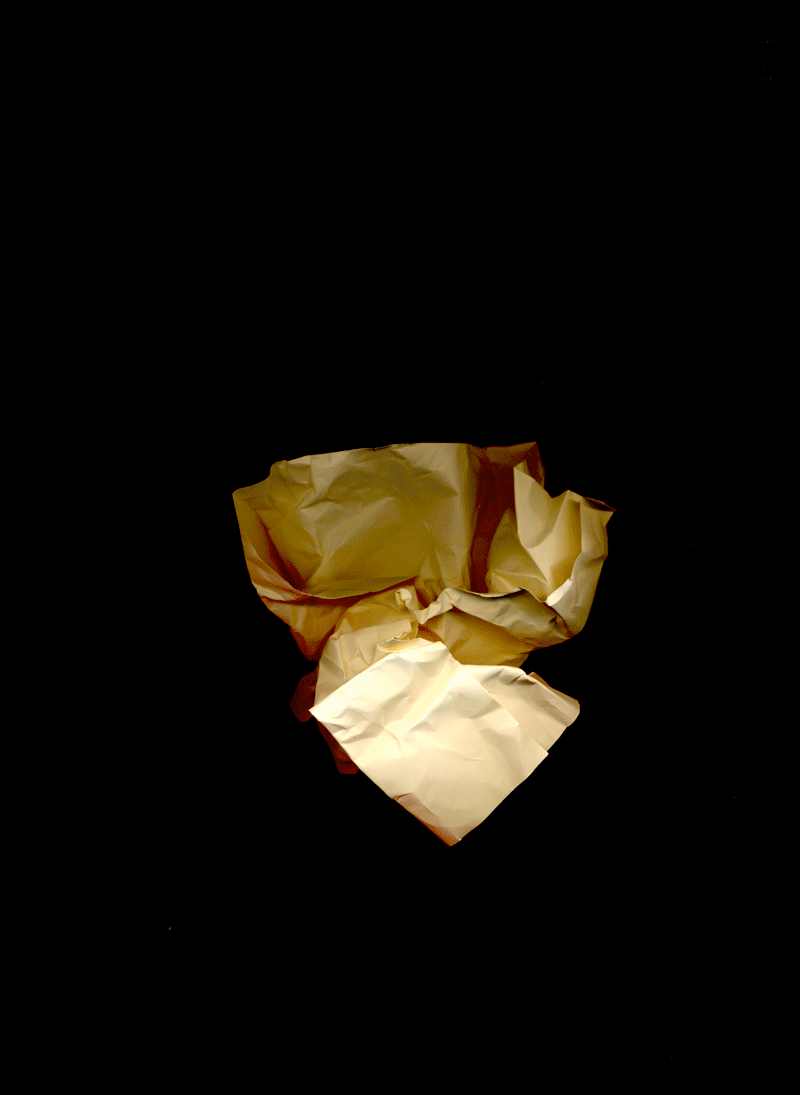
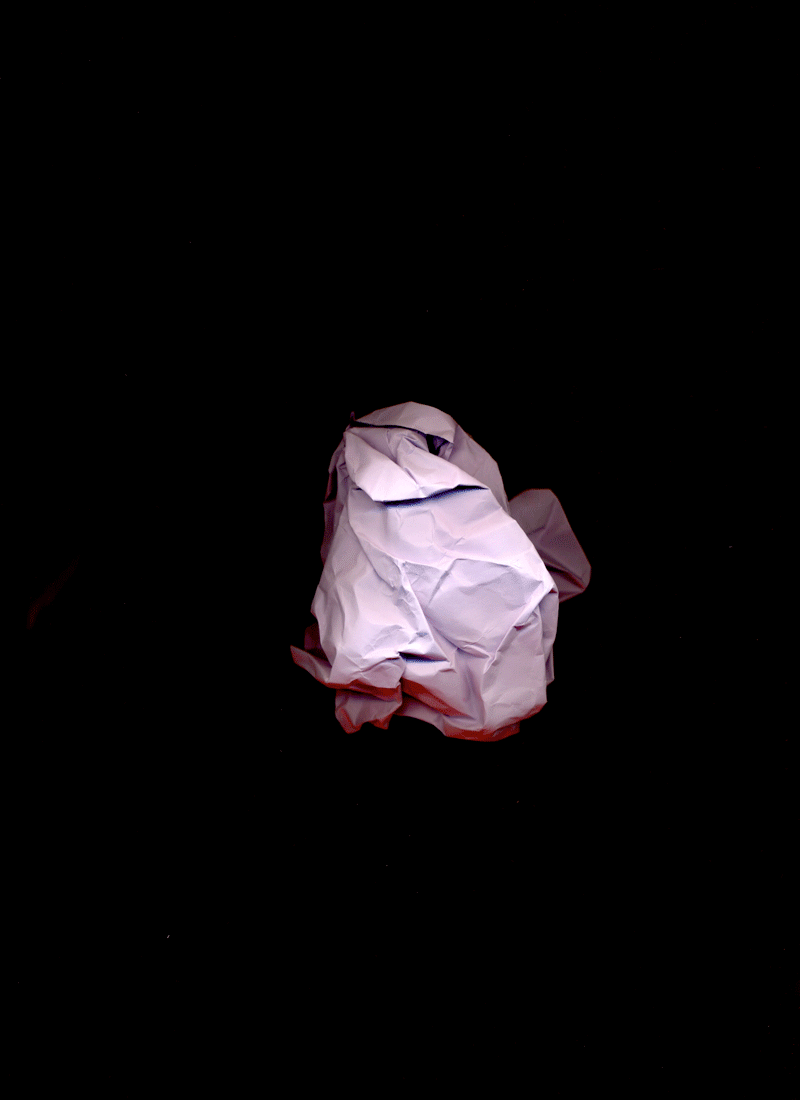
From this starting point, the collectives participating in the seminar shared the following 12 ways of approaching, understanding and using care in cultural practices, groups or organisations:
1. Exchange system that evolves through, and is based on, care.
2. Organisation models that challenge the production-reproduction divide, suggesting the possibility of unifying both concepts.
3. Care as a form of hosting and be hosted.
4. Redistributing resources by balancing privileges.
5. Value systems and values that incorporate care.
6. Multiple and multi-species care.
7. A tool for promoting access of what is ‘residual’ and ‘marginal’.
8. Support mechanism.
9. Act of resistance (individual and collective).
10. Intersectional device.
11. Building community method.
12. Healing device.
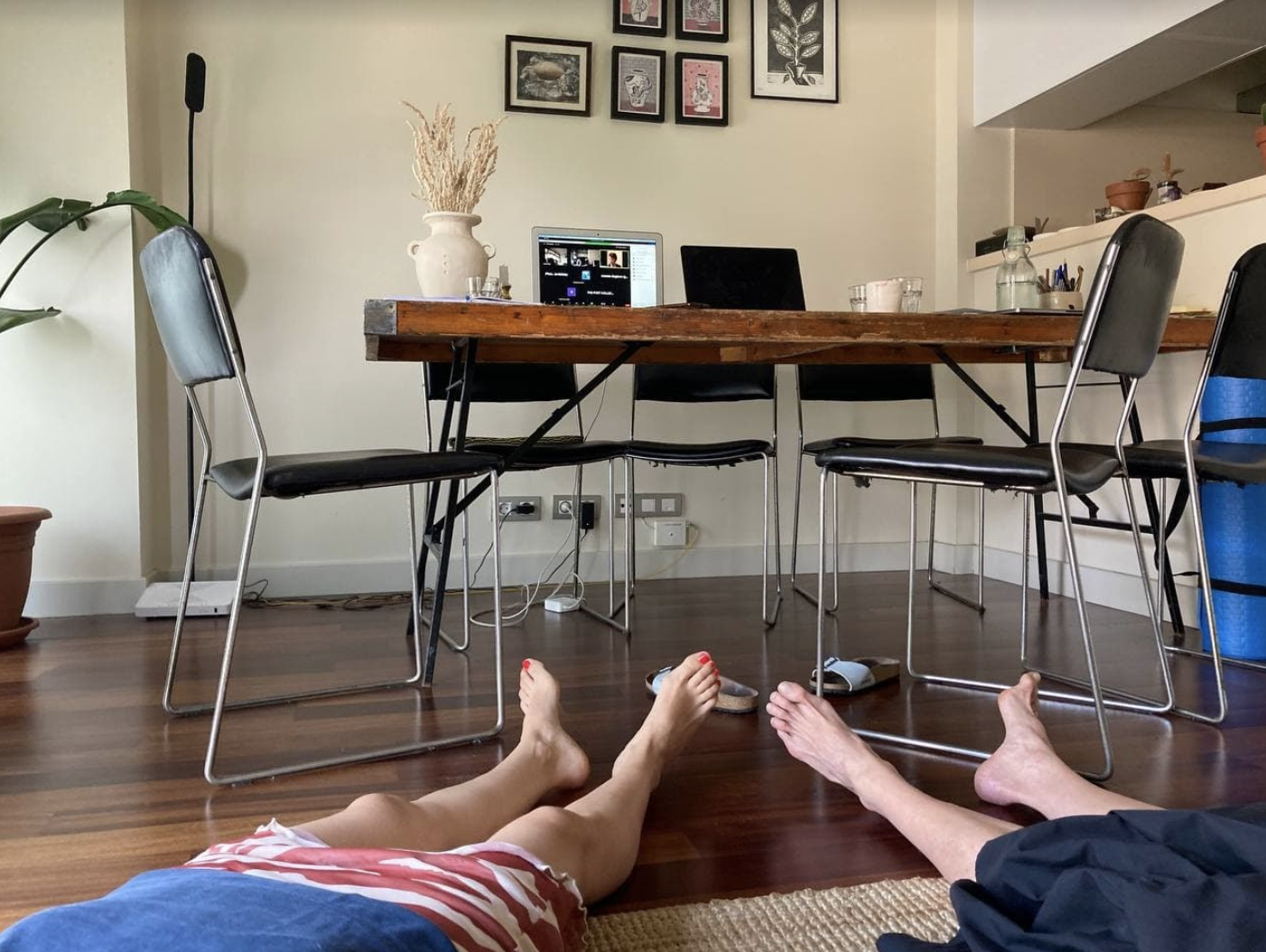
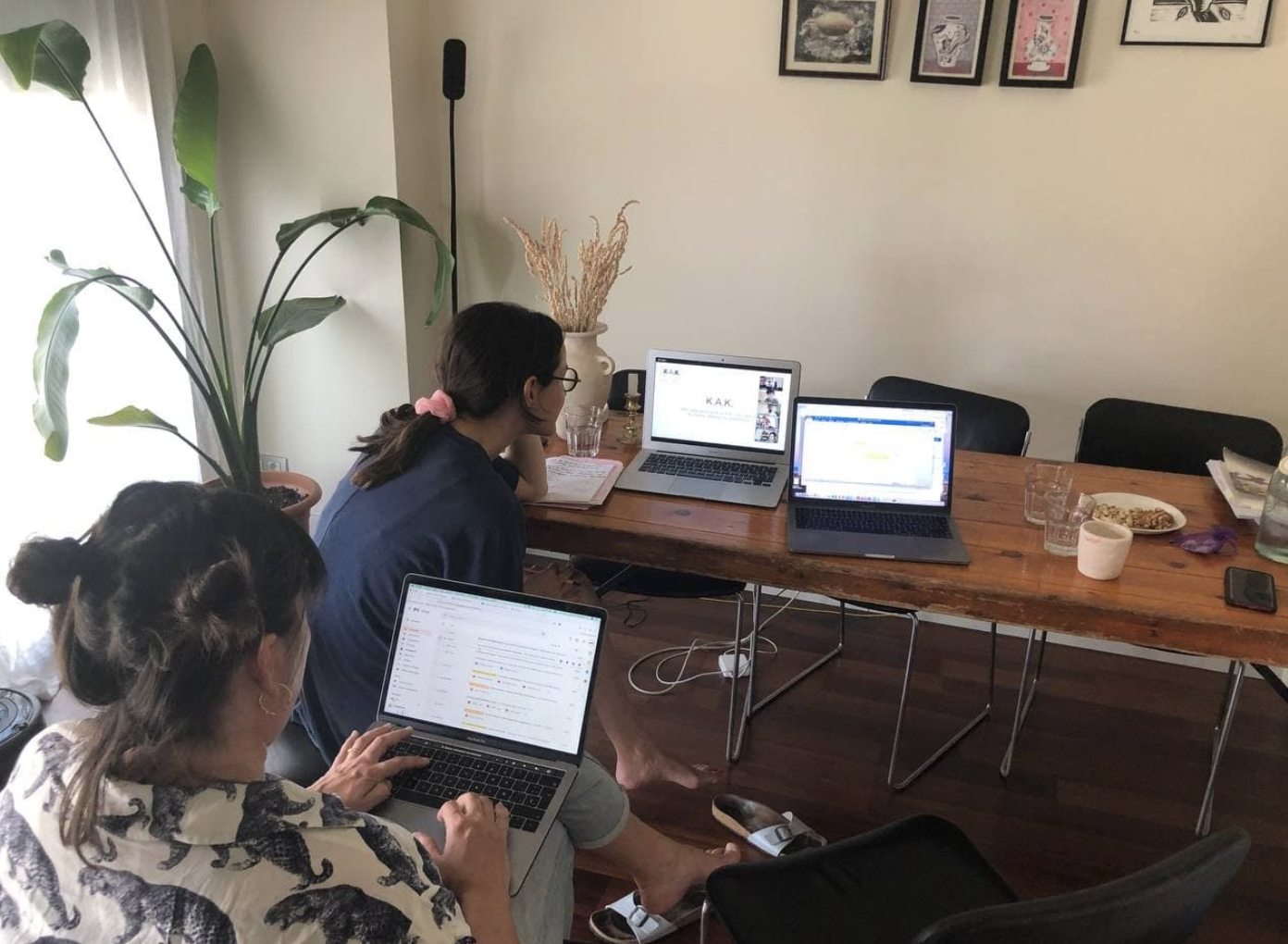
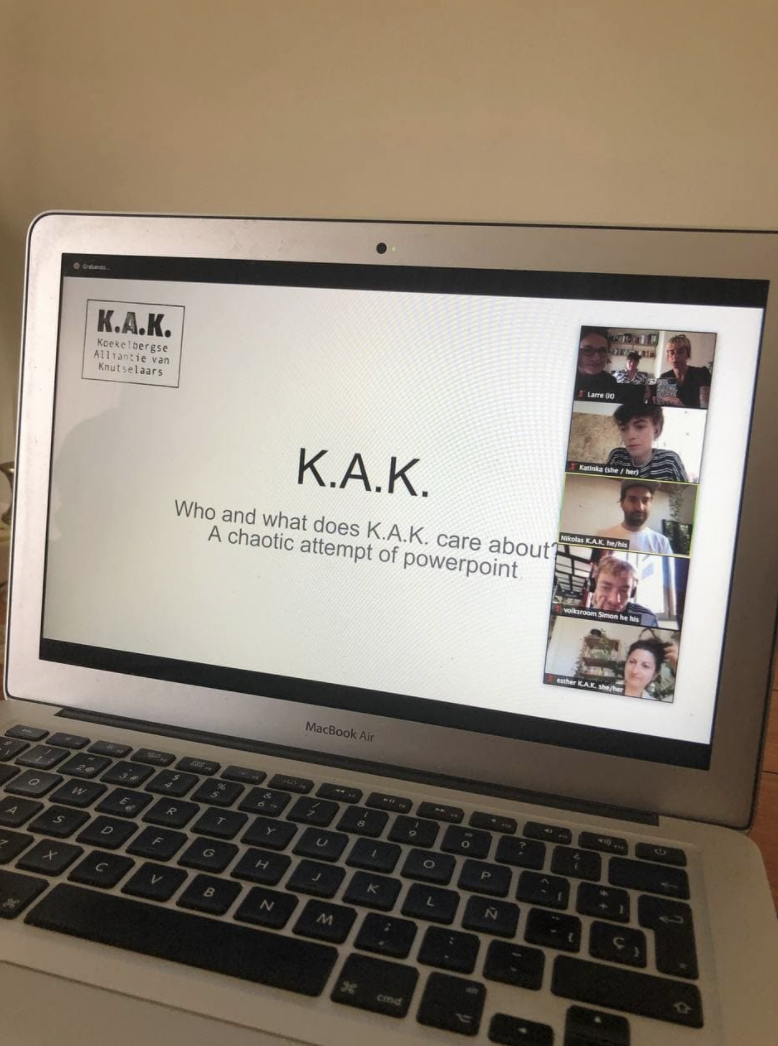
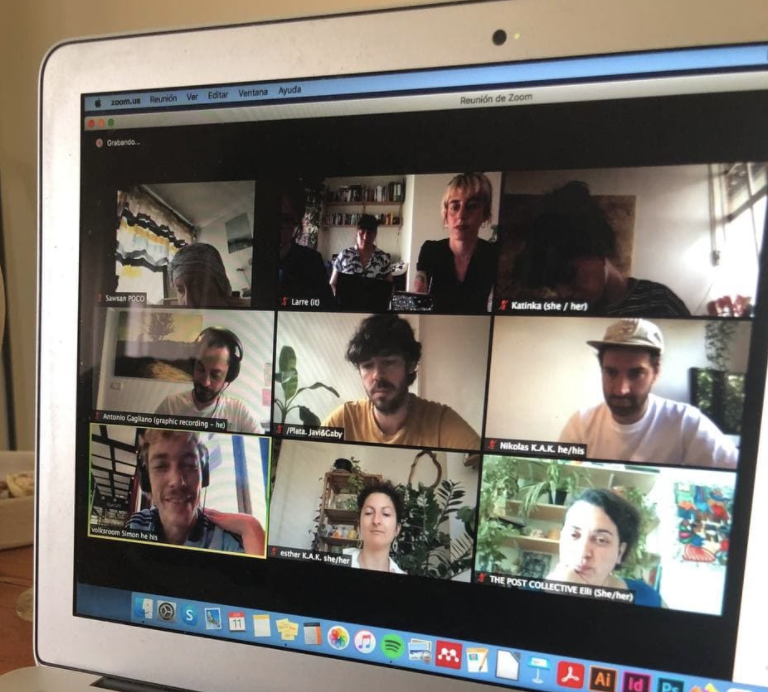
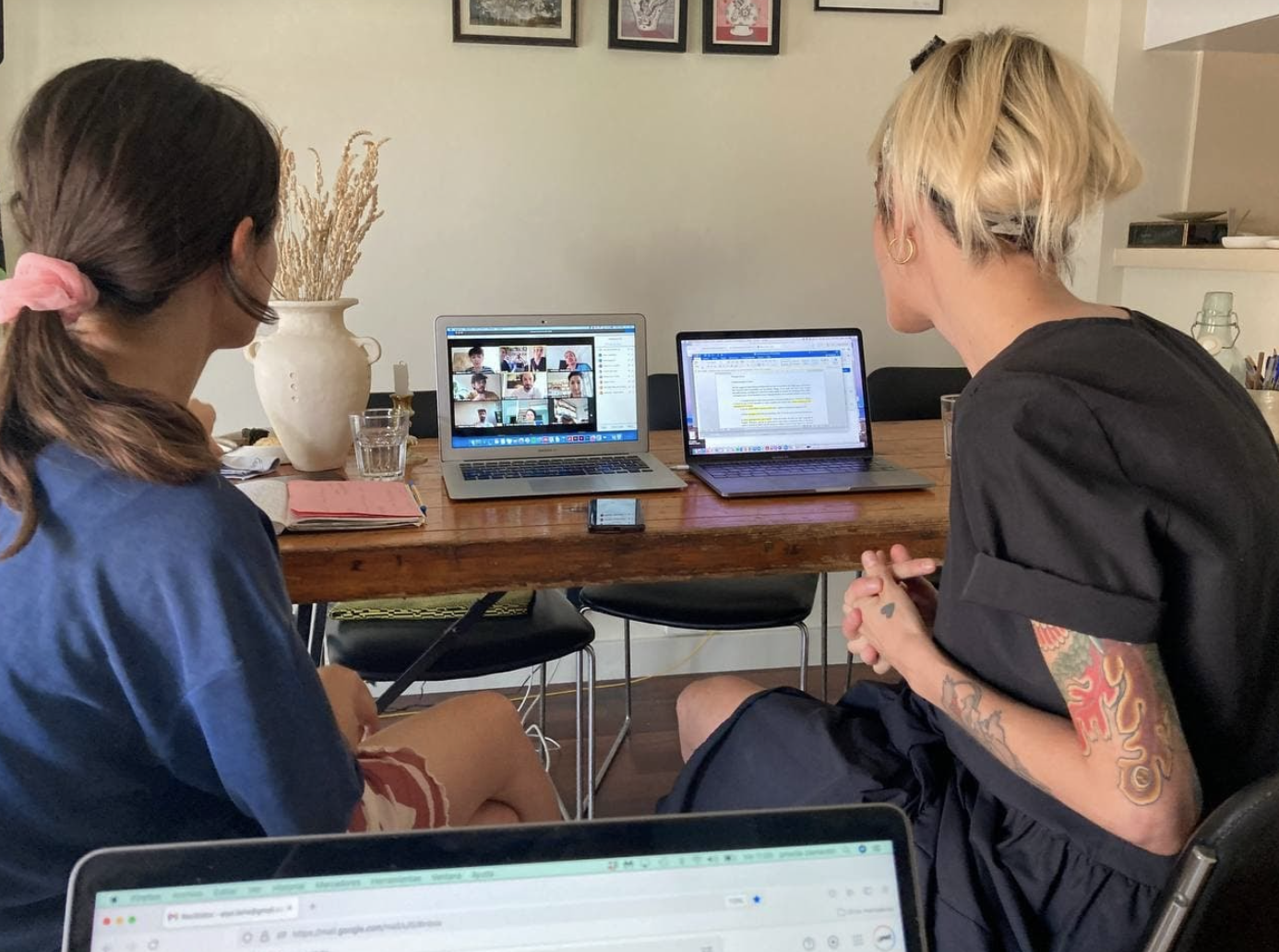
This 1st phase of Catalyst CIRCLUSION was developed as an online seminar. A format typical of the academic environment hosting it, but that at the same time made visible and challenged the abilities and limitations of such format regarding the promotion of spaces of trust from which to encourage the generation of collective processes.
An important issue to be taken into account is the peculiar moment in time in which this seminar took place, traversed by the COVID-19 health crisis and the era of social distancing. This is the reason why the seminar had to be devised as an online format, taking into account the resources offered by the University of Antwerp. This led to questions such as: How do care methodologies change in an online reality? And how do we approach physical distance in collective creation processes? How can careful and caring methodologies be configured in an online format?
These questions led us to envision and generate ‘Being sky a matter of circlusion’, in collaboration with Belgian artist Katinka de Jonge, a series of guided exercises/meditations directed towards the creation of a space of trust and imagination, in which to share and co-create the ethical and practical bases that were the guidelines for the seminar.
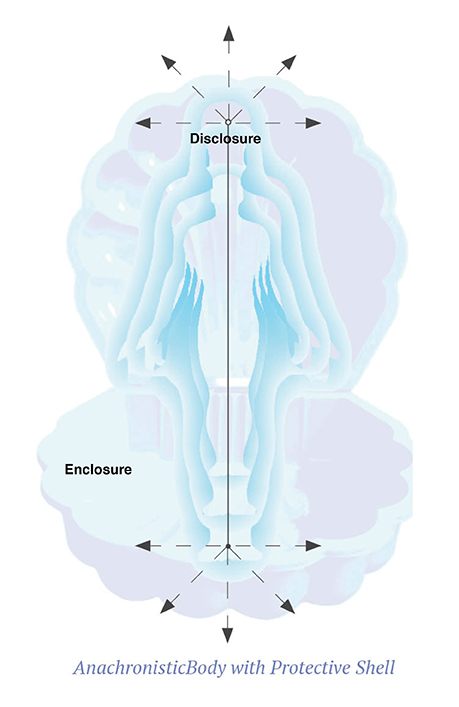

(Liesje De Laet and Katinka de Jonge)
The following have been part of the (Un)SCREWING CARE Care Seminar:
KAK; corresponds to the initials of Koekelbergse Alliantie van Knutselaars; an alliance of theater men, handymen, musicians, thinkers and other cheaters who organize their own working conditions horizontally. Both their working methods and the forms of presentation change from one project to another. K.A.K. understands theater as a heterotopia and seeks to mix fiction and reality, with the intention of being receptive and open to possible encounters. K.A.K functions as a platform for meeting and dialogue, and as a project in search of new forms of creation and presentation. Their aim is to accommodate eclectic and unclassifiable works from the field of performing arts, in which there is no obligation of result, but there is a desire and a persistent need to work together. K.A.K. are Annelore Crollet, Aurelie Di Marino, Benjamin Opdebeeck, Ciska Thomas, Dries Gijsels, Esther Gouarné, Femke Stallaert, Frederika Del Nero, Karlien Torfs, Lotte Diependaele, Nathalie Goossens, Nicolas Delalieux, Nikolas Maholas Lestaeghe, Nona Gohieu Goethijn and Mats Van Herreweghe.
Volksroom; is an off-performance-studio space located in Anderlecht, Brussels. It is an independent space dedicated to artistic research on performance and dance. It’s an open space that invites all curious to come and visit them, and offers residencies to artists, possibilities to perform, research or to teach workshops.
Post Collective; is an autonomous platform of co-creation, co-learning and cultural activism created by and for refugees, asylum seekers, sans papiers and accomplices. It seeks to introduce a range of artistic, cultural and employment opportunities, as well as provide an overall collaborative environment for its members regardless of their legal status. Generative modes of dialogue and storytelling form the basis of the Post Collective’s speculative and experiential approaches to art+design, with the aim of developing creative alternatives beyond the dominate systems of control and exclusion we are facing. This means facilitating the position where we do not struggle to be assimilated, but instead rethink and re-conceptualize critically a future together as community. Post Collective is conformed by illustrator and graphic designer Mirra Markhaeva (Buriatia); graphic and game designer Mohammed Tawfiq (Iraq); philosopher and designer Sawsan Maher (Syria); photographer and visual artist Mahammed Alimu (Somalia); filmmaker, writer and sound artist Marcus Bergner (Australia); fine artist, musician and digital designer Hooman Jalidi (Iran); and artist, activist, designer and researcher Elli Vassalou (Greece).
Katinka de Jonge; is a Belgian artist whose investigative practice focuses on reflection and definition. She is interested in what happens ‘between the lines’, and makes connections between brief conversations, archive material and unobtrusive processes in- and outside organizational structures and its surroundings. This results in (site specific) installations, audio works, multiples and publications that hold a mirror to the context in which it is presented, but at the same time transcend this. Katinka has a broad interest in collaborative arts practice and artist-run initiatives. Currently she is connected as a researcher on artistic self-organisation to The Royal Academy of Antwerp and shadow member of the Culture Commons Quest Office.
Conciencia Afro; [Afro Conscience] is configured as a meeting space for the Afro-descendant, African and black community in Spain through their cultures. In recent years, through the Festival held annually, as well as through its publications and its support network, Conciencia Afro has established itself as a space where African, Afro-descendant and black associations, projects and entities meet the in order to continue building a heterogeneous, transnational and strong community, creating a place of empowerment for the different voices and trajectories that compose it. The ConcienciaAfro team is made up of African and Afro-descendant people from different fields that make up a multidisciplinary and choral team. These people are Deborah Ekoka, Yeison G. López, Sheherezade Shepard, Mary Ilda Antonio Ramos, Esther Mayoko, Rubén H. Bermúdez, Ladis B. Site, and Pilar Oyana Nse. Conciencia Afro is one of the resident programs at the Matadero Madrid Artistic Residency Center.
Plata; is a place under construction where a common and common coexistence is organized. A place where the community is invited to propose lines of creation, thought and research, and in which the artists participate, as one more family, of the context. For them, the most interesting thing is to link ourselves to as many bodies and knowledge as we can and elaborate what they call an ‘aesthetics of sharing’ through alternative practices and other forms for collaboration and exhibition that are capable of developing bearable ways of life, recovering the alliance between creation and the profession of living. Plata gives continuity to the little practices that La Fragua had been developing in the Convent of Santa Clara.
Larre; is a feminist collective that uses cultural mediation to propose processes of social transformation with an intersectional and intergenerational perspective. Its organization is structured based on putting care at the center, which affects the articulation of its processes as well as the work dynamics established in the group itself. Larre is a propositional force formed by Priscila Clementti, Lara García Díaz y Ángela Palacios. Since 2018 they imagine and work with the aim of developing and putting into use (together with other agents) thinking and practice feminist tools to generate a common and plural ground from which to point out, question and reconstruct theories and practices of/in the current cultural sector. Larre is the collective that impulses the project Te( n ) cuidado.